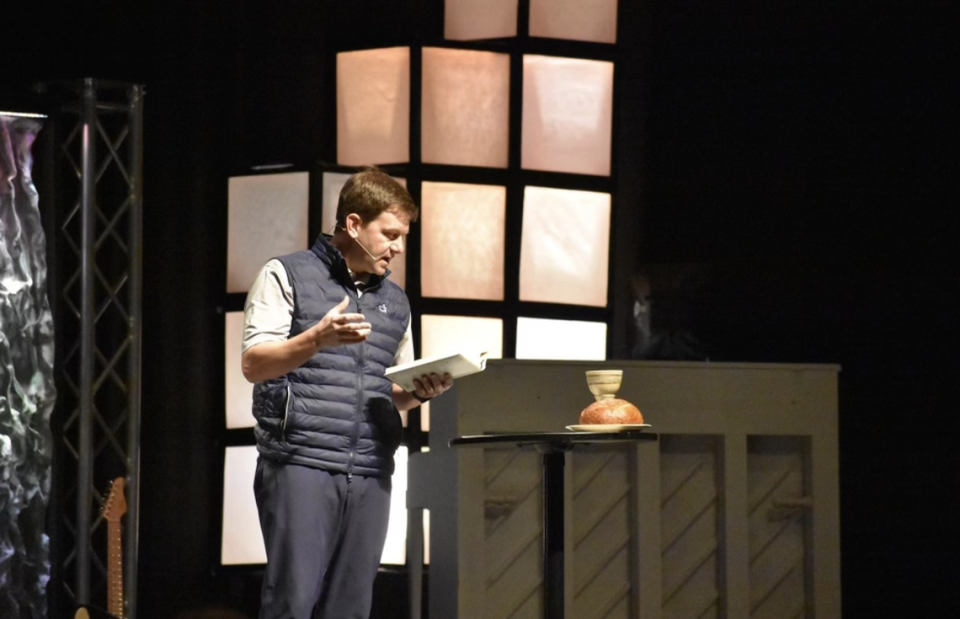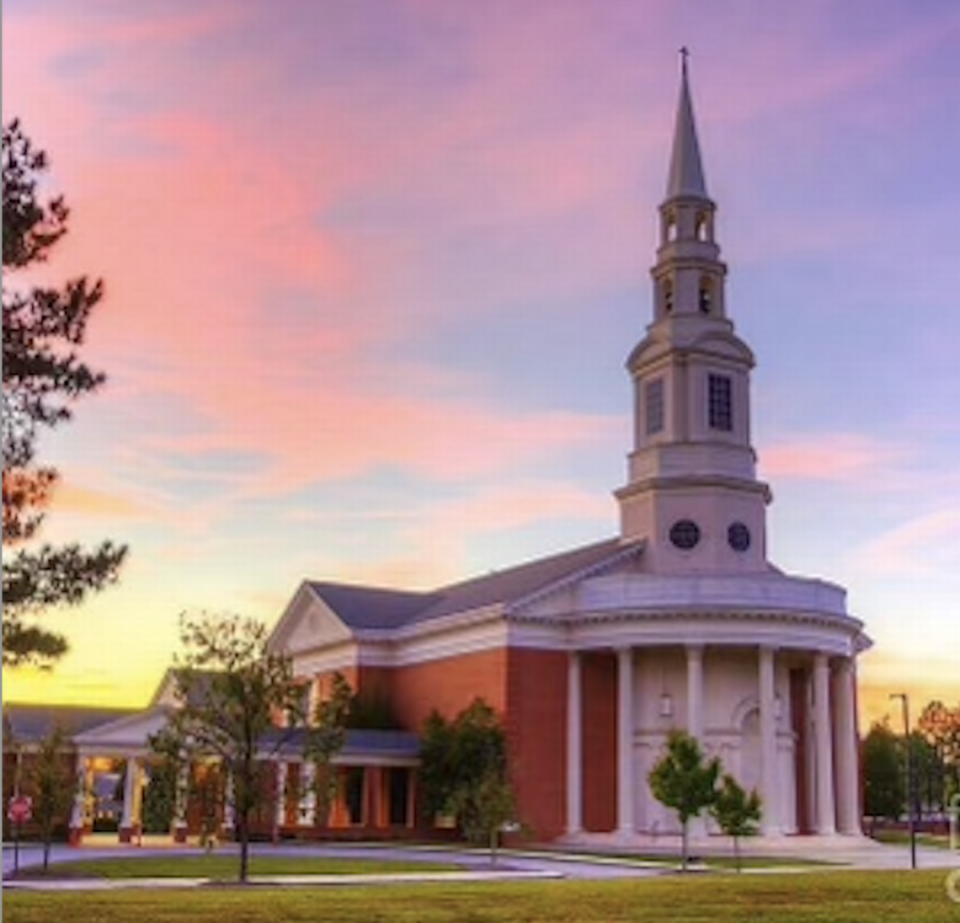Some say Masters week is a religious experience. Are churches trying to copy it?
Over six decades ago, long before Jack and Tiger and Masters gnomes, there was a local priest in Augusta. A man from Columbia named Alan Clarkson who spent 37 years delivering sermons at the Church of the Good Shepherd in Augusta.
He was well respected in the community, which meant he was well respected by members of Augusta National Golf Club. Even then, many Green Jackets did not reside in Augusta, but a few did — and a handful were in the pews every Sunday listening to Clarkson.
After one Masters tournament, Clarkson went to the powers that be at Augusta National and asked for change.
Could they please not have the Masters scheduled during Holy Week, the week up to Easter? He asked, according to his son Ted.
“You’re the one that changes your date every year. We’re always the same. No, we will not change.”
The Masters still hasn’t changed. Save for the COVID-altered 2020 Masters played in November, the tournament is always played the first full week in April. And, so, Augusta residents — and churches — are forced to adapt.
Many choose to escape for the week. Every school district in Augusta has its spring break during Masters week, and many families choose to vacation while their homes are being rented for gobs of cash.
Which means church “is a ghost town,” said Will Dyer, the senior pastor at the First Baptist Church of Augusta.

Last year, because Augusta National does not change, Masters Sunday fell on Easter. Normal Easter attendance for Dyer’s church is 1,400. That Sunday, only 750 showed up.
Ted Clarkson, now the interim rector at his dad’s old church, normally preaches four times every Sunday. On the two Sundays impacted by the Masters, the Church of the Good Shepherd combines two of the services. And, still, “on Masters Sunday itself, (attendance) will drop as much as 50%,” Ted said.
Now amidst the dipping attendance, patrons in town for the Masters will seek out an early-morning service before heading to the golf course. Three years ago, rock legend Alice Cooper was in Augusta and showed up to First Baptist for a service, seeking out Dyer afterwards to chat and telling him that he always seeks out a place of worship on the road.
Added Roger Schwartz, Pastor at Our Redeemer Lutheran Church in Augusta: “Our visitors go up pretty dramatically. … During Masters time, it’s like, ‘Oh, I have 20 people that I have no idea who they are.”
It is impossible to describe Augusta without its churches. Reports are that more than 230 reside in the city limits, which means for every 900 or so residents, there is a church. Driving around the city, the number seems low.
And then, think: In an area so dense with churches, there is the most-famous golf course in all of America — which somehow operates alongside and on a different planet than the churches across the street.
Take Saint Mark Methodist Church for example. Less than a mile from Magnolia Lane, the placard in front of Saint Mark read: “Welcome to Amen Corner.”

When digging deeper, there seems to be this odd desire for folks to try and compare the Masters to your local church.
When searching “Augusta National church,” there are myriad bizarre articles/blog posts that appear. Such as:
How the Church Has Become Like Augusta National.
Five things your church could learn from Augusta National.
Why the Church Shouldn’t Follow Augusta National Golf Club’s Membership Policy.
What The Church Can Learn From The Masters.
Most of the good revolves around Augusta National going all-out about the patron experience, littering the course with greeters and workers and making everything feel special. The bad mostly revolves around the club being exclusive. The theme of all these posts, though, is summed up in a quote from the latter post: “It’s time to give church visitors a reason to want to come back instead of just expecting them to do so.”
“It is a unique institution, and it does very well at what it intends to do,” said Ted Clarkson, who was born in Augusta. “And it has never been about — it could have always generated more money for itself than it does.”
Said Schwartz, who has been at Our Redeemer church since 2008: “It’s like, ‘Oh yeah, let’s make everything perfect like Augusta National.’ We’re not meant to be perfect this side of Heaven, but to be forgiving and helpful to others — that’s something we like to do and something would be something (where) you could make the analogy.”
“Here’s, I think, the analogy.” said Dyer, who’s lived in Augusta for seven years. “For serious golfers, Augusta National is the promised land.”
Dyer has heard all the remarks. Folks who come to Augusta National for the first time. And, yep, the grass is just as green as you thought it would be. The people are as nice as you expected. And those azaleas are as beautiful as you’d imagined. And then they’ll remark, “This is Heaven on Earth.”
“I’ve got to tell you,” Dyer said. “I think the Kingdom of God — no matter how beautiful Augusta National is, and it is a beautiful, beautiful place — there is no comparison.”
In fact, Dyer turned the comparison.
“If you look at what they have done to make the city of Augusta a better place,” Dyer said of Augusta National.
“What I would say is, if the church was benevolent and kind to the city as Augusta National has been, maybe the church would be in better shape.”

